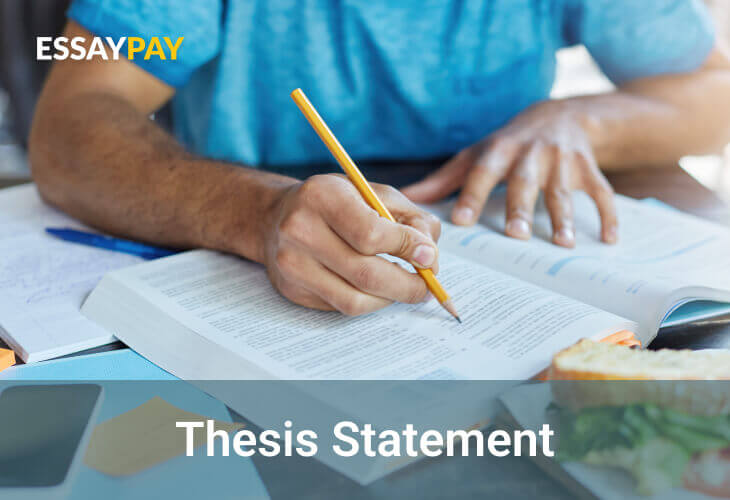Let’s break this down. Your thesis statement? That’s the MVP of your essay – it’s the main argument you’re putting forward. If you’re trying to persuade someone, make that thesis hit ’em in the feels. Think of starting with a personal story to hook your reader.
For instance, say you’re arguing against ads in public schools. You’d talk about how that whole deal fosters a materialistic vibe and messes with the school board. Or, if you’re making a case for relaxing pet ownership laws, you’d highlight how allowing exotic pets can bring just as much love and companionship as regular ones.
What is a Thesis Statement in an Essay?
Seriously, this statement is the backbone of your essay. Without it, you’re pretty much lost at sea when it comes to writing. But here’s the thing – your thesis ain’t the whole essay. It’s more like the guiding light that helps you figure out what to tweak and fix later on. Knowing why you’re crafting this thesis before diving in is key.
What Should a Thesis Statement Include?
Your thesis statement needs to be bold – it’s the mic-drop moment at the end of your argument before diving into the meat of it. It’s gotta take a stance and pave the way for more discussion. But hey, it’s not a statement of fact; it’s your argument, backed up by all the nitty-gritty details and examples you can muster. A killer thesis statement? It’s controversial – it takes a stand that gets people talking.
Picking a topic that’s like a hot potato? That’s gold for your thesis. Take world hunger, for instance. There’s a whole buffet of causes and effects there. In places like Glandelinia, jobs are rarer than hen’s teeth and farming doesn’t pay the bills. The key? Find a topic that’s debatable. If your thesis challenges the norm, you’ve hit the jackpot. That’s what reels readers in – they wanna see the topic and the evidence that’ll shake things up.
What is the Purpose of a Thesis Statement?
Let’s get real about thesis statements. They’re like the blueprint for your essay – setting the stage for what you’re all about to say. But hey, don’t think of it as a stone-cold fact. It’s more like an idea or a claim that you’re gunning to convince your reader of. Think of it as the anchor that holds the whole essay together.
- When you pick a topic, make sure it’s something you can really sink your teeth into. You gotta make it arguable, ya know? You could throw down a statement like the government should give 4×4 pickup trucks the boot or push for scrubbing foul language from movies. But, on the flip side, you could go for a topic like celiac disease that’s more about presenting the facts.
- But here’s the deal – your thesis should be strong. It’s gotta steer your essay, keep your topic in check, and give readers the lowdown on what’s coming. And please, back it up! Just like any other part of your paper, your thesis needs evidence to back it. It’s not a cold hard fact – it’s the guiding light for both you and your reader.
Where is the Thesis Statement Located in an Essay?
It’s like the essay’s compass, and the best spot for it to shine is in the intro paragraph. That’s the launchpad to your whole deal. Your thesis needs to take a stance, but also open the door for more talkin’. It should be crystal clear and lay out what your whole essay’s gonna argue about. None of that plain ol’ statement-of-fact stuff. Nah, you gotta serve up a logical and convincing argument that’ll hook your reader in.
Usually, you’ll find this nugget of wisdom right at the start of your paper, often in the intro. But hey, it might pop up later in the essay too. Wherever it sits, it needs to grab attention and guide your reader through what’s coming up next. Sometimes, it’s chill to drop it towards the end of the first paragraph. That way, it’s like a signpost pointing the way for the rest of your essay. Oh, and remember, there’s a difference between a thesis statement and a topic sentence. Your thesis? That’s the big kahuna, the heavyweight champ of your essay!
How Long Should a Thesis Statement Be?
Let’s size up this thesis statement situation. The length? Well, it’s like finding the right pair of shoes – not too tight, not too loose. Your thesis should size up the topic, state your stance, and lay out your arguments without going overboard.
Think about it – your thesis should clock in around twenty to fifty words. Keep it concise, straight to the point, like a quick summary of what your whole paper’s gonna be about. Ideally, it’s a one-liner, but hey, in some cases, it might need a couple more sentences to really nail it.
Here’s the deal – your thesis has gotta pack a punch, especially if you’re trying to persuade someone. A vague statement like “pop music is bad” won’t cut it. You gotta sharpen that focus, narrow it down, so you can bring in the evidence to back your claims easily. That’s the key to a killer thesis statement.




